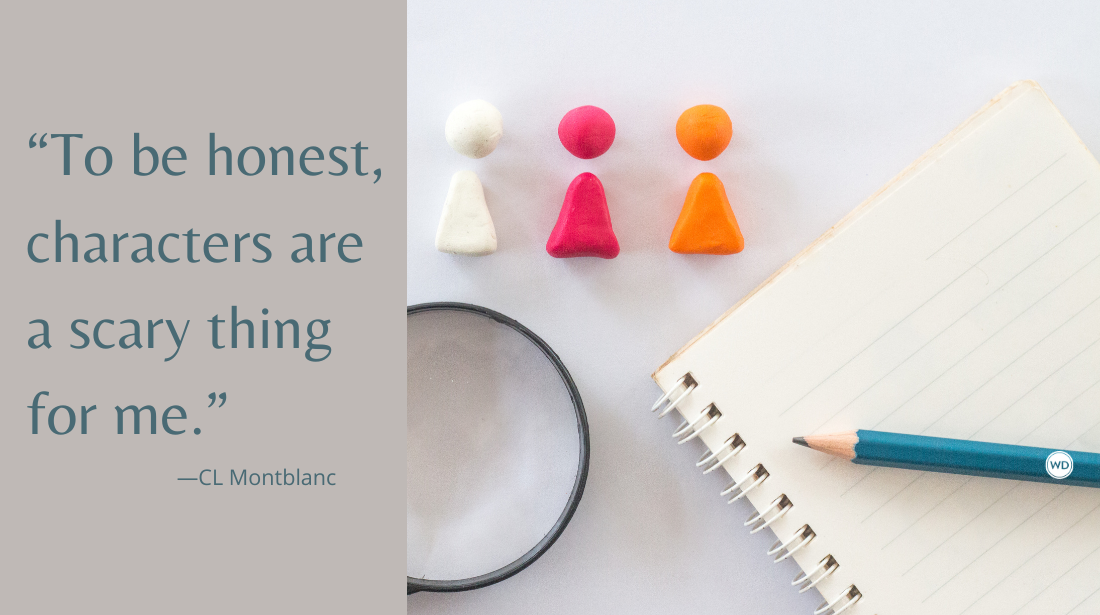Patrice Caldwell: Self-Love and Romantic Love Go Hand in Hand
In this interview, author Patrice Caldwell discusses the exciting resurgence of romantasy and her new YA novel, Where Shadows Meet.
Patrice Caldwell is a former children’s book editor turned literary agent and author, born and raised in Fort Worth, Texas. She has been named a Forbes’s “30 Under 30” as well as a Publishers Weekly Star Watch honoree. Patrice is also the editor of A Phoenix First Must Burn and Eternally Yours. After years of living in New York City, she moved back to Texas with her two adorable cats and so many books. Follow her on X (Twitter), Facebook, Instagram, Threads, and TIkTok.
In this interview, Patrice discusses the exciting resurgence of romantasy and her new YA novel, Where Shadows Meet, her hope for readers, and more.
Name: Patrice Caldwell
Literary agent: Paige Terlip at ABLA
Book title: Where Shadows Meet
Publisher: Wednesday Books/SMP/Macmillan
Release date: April 1, 2025 (U.S. & U.K., Hot Key Books)
Genre/category: YA sapphic vampire romantasy
Previous titles: two YA anthologies, A Phoenix First Must Burn (SFF, pitched as Beyoncé’s Lemonade meets Octavia Butler) + Eternally Yours (paranormal romance)
Elevator pitch: Once long ago, an angel sacrified her wings to be with the princess of the gods—a young woman who became the first vampire and whose bloodthirsty rule changed their worlds for the worst. A thousand years later, after a war between vampires, humans, and the gods that created them both, two young women equally as different—a vampire princess and a seer—embark on a perilous journey to the place where all souls go at their end to save a friend and stop an even greater war... thousands of years in the making.
What prompted you to write this book?
I LOVE vampires, and I always thought it would be cool to see them in a fantasy setting thanks to the film Underworld: Rise of the Lycans (it’s not as popular as the first two, but like that and have it be a war between vampires and humans instead and you’d have a sort of prequel for my book). Like, that movie definitely was the spark, along with specifically Anne Rice’s Queen of the Damned (i.e. the not-very-faithful adaptation of the novel, more inspired by than an adaptation, but seeing Aaliyah, a smart/talented/gorgeous Black woman I admired as a young girl, as a power-hungry vampire queen was everything ... but also yes, can’t wait for the TV show that’s been sooo good to do this season and us to also get rockstar Lestat)
Also, my lifelong love for mythology and journeys to the underworld and Paradise Lost and Beloved (which seems so random but it makes sense in my head, ha)
So, one day I was like, okay let’s do it. Let’s take all that and put it in a book.
How long did it take to go from idea to publication? And did the idea change during the process?
Oh, years. And part of that was that it took me years to figure out the right book, like the book I actually wanted this to be. At first, I feel like I had helpful but also too many cooks, and eventually I had to strip all that away. I feel like I’m still stripping all that away as I planned the sequel and am drafting it to ultimately end up with the story I want these two novels together to be.
The idea changed a lot. At one point it was during the war; at one point Leyla, the vampire princess, became queen at a young age. Favre’s POV came much later. There were parts that were in book one (like this really cool—cool because I love this fight scene—devasting scene where you really get to experience what the human vampire hunters, Raiders, do to vampires) and another that would be very spoilery, but also is a part of the world that if you read book one, won’t actually come as that much of a surprise, as well as a hot/fun scene between Leyla and Najja under a waterfall that are now going to be in book two. And that was really because I realized I was too ahead of things. I realized what I thought of as point A was really point B, and some things had to happen to get the characters even in the right headspace for that.
Were there any surprises or learning moments in the publishing process for this title?
Maybe not a surprise but still a nice conclusion of sorts. When I started writing for publication as the aim, it was paranormal romance right when it was declared dead because the YA market was oversaturated. A bummer for many reasons, but also because as a queer Black woman (who was both a college student and teen/20-something book blogger) I was like, But like there’s barely any BIPOC and/or queer paranormal romance in the market... how is it dead?
I queried paranormal romance stories, received very nice passes, but still passes, saying I didn’t connect w/the voice or characters (which can be very standard although as a queer BIPOC agent, I don’t use that in passes as it understandably gives many marginalized authors especially a bad taste) or I’d have a hard time selling this in this market.
I’ve been reading paranormal romance across categories forever, so even when I tried to write other things, it’s what I always came back to. I kept saying online, “It’s gonna come back, etc.,” and then it did, and just before it did I got my book deal, and became part of a rising trend instead of at the end of it, which has been so fun as a publishing professional, reader, and also as a writer who wants to publish books labeled as paranormal romance or with these types of characters like vampires forever.
Were there any surprises in the writing process for this book?
Yes. I’ve learned I should never write a book over this many years (2017-2023). Or at least not allow people into my brain before I’ve figured out what the story is. I love this book, it was the best I could make it at the time, and I again adore it and have no interest in going back. But I think the process would’ve been smoother for me and ended up in a much smoother editorial process had I had a stronger sense of what story I was trying to tell. So much of this novel is about fate and self-discovery, but it’s also about stories, their power, and the danger of someone else controlling the way your story is recorded. In hindsight, there’s more I would’ve teased out about all that. But again, I love this book. I put it through a text to speech app and it made me cry to hear it all. It’s given me confidence to trust myself and my stories and that it’s OK to say, “no, I’m not ready to share this,” until you actually are.
Also, first-person multiple POVs ... omg. I had to do it that way as there are parts I needed myself and readers to really feel as if it’s them. But gosh that was hard. Third person honestly intimidates me a bit though, but maybe I’ll give it a try next since I seem inclined to multiple POV stories, ha.
What do you hope readers will get out of your book?
A reminder that it starts with you. No, you don’t have to be “perfect” before you’re worthy of love by others. Not at all. But I do think self-love and romantic love go hand in hand. All types of love to be honest. I wrote this book across my 20s and now it’s publishing in my early 30s, and the love I have for myself has changed and grown in such a beautiful way. Ultimately, yes, there’s romance and the gothic and the fantastical, but what it’s really about is three queer Black women who have to learn to put themselves first, to trust themselves, and to love and forgive themselves no matter what.
If you could share one piece of advice with other writers, what would it be?
Have fun. When you become an author, it also becomes business. Try as much as you can to keep that core, that heart, that spark of being a writer, and enjoying writing as much as you can for yourself in terms of not letting the business side control/manipulate it too much. And also, learn about the business. Don’t let anyone tell you, you don’t need to know. It’s your business now, too. Ask the questions, push for the answers (or ask your agent to), and own what you bring to table. As someone who is constantly doing negotiations, don’t forget it’s not just about what they offer you or how lucky/grateful/insert phrase we’re taught to say to have this opportunity. You probably worked very hard for this and as a result have a skill set (writing the book you’re writing) that they want. Keep that in mind, too, and it’ll feel more like a partnership and less like you’re at the mercy of a publisher, because you’re not.
Robert Lee Brewer is Senior Editor of Writer's Digest, which includes managing the content on WritersDigest.com and programming virtual conferences. He's the author of 40 Plot Twist Prompts for Writers: Writing Ideas for Bending Stories in New Directions, The Complete Guide of Poetic Forms: 100+ Poetic Form Definitions and Examples for Poets, Poem-a-Day: 365 Poetry Writing Prompts for a Year of Poeming, and more. Also, he's the editor of Writer's Market, Poet's Market, and Guide to Literary Agents. Follow him on Twitter @robertleebrewer.








